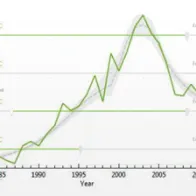Surveillance and updates for HIV and AIDS
Annual reports and modelling tools
Monitoring implementation of the Dublin Declaration
The Dublin Declaration on Partnership to Fight HIV/AIDS in Europe and Central Asia, adopted in 2004, was the first in a series of regional declarations which emphasised HIV as an important political priority for the countries of Europe and Central Asia.
Every second year, ECDC assesses and reports on the progress of the implementation of the Dublin Declaration through a series of thematic report and evidence briefs.
Following the progress reports since 2010, ECDC will present a new series with the main findings from the 2026 Dublin Declaration monitoring process, discussing key issues and assessing the progress made in the response to HIV in Europe and Central Asia.
The reports will be based on the results from the online questionnaire for both EU/EEA countries, and non-EU/EEA countries.
The declaration
The declaration states the commitment of all signatories to act collectively in tackling the HIV/AIDS epidemic and sets out a number of actions to accelerate the achievement of this commitment. The countries also committed to closely monitor and evaluate the implementation of the actions outlined in the Declaration, along with those of the Declaration of Commitment of the United Nations General Assembly Session on HIV/AIDS, and call upon the European Union and other relevant regional institutions and organisations, in partnership with the Joint United Nations Programme on HIV/AIDS, to establish adequate forums and mechanisms including the involvement of civil society and people living with HIV/AIDS to assess progress at regional level every second year.
Methodology
Data sources
ECDC has used data from the following sources for reporting: country reporting to UNAIDS on core indicators used for Global AIDS Response Progress Reporting (GARPR); country data collected by EMCDDA on HIV and drug use; and a specific Dublin questionnaire developed by ECDC in consultation with country representatives that focuses on regional issues, including key populations most affected by HIV.
Country reporting has been supplemented by data from other sources, including the HIV surveillance data reported annually to the ECDC and European Commission projects such as the European MSM Internet Survey. Other data sources have also been used to inform analysis of specific issues such as HIV financing. The source and accuracy of supplemental data has been confirmed with national governments. The 2010 round of Dublin reporting also drew on data submitted by countries using the UNAIDS’ National Commitments and Policy Instrument (NCPI). In 2014, EU/EEA countries reporting on the Dublin Declaration were only required to answer seven NCPI questions for UNAIDS use.
Data collection and reporting process
The previous rhythm of monitoring the HIV response every two years was adjusted in 2018, in an effort to limit the reporting burden on EU/EEA countries. These countries are no longer required to report to the UNAIDS Global AIDS Monitoring (GAM) online reporting tool but instead report to ECDC.
Following the UNAIDS mandate to report annually on the progress, it was agreed that ECDC from 2019 onwards monitors the HIV response of EU/EEA countries annually, but with a significantly reduced questionnaire in alternate years (see here the questionnaire for 2019).
Country consultation
For each round of Dublin reporting, ECDC has convened an advisory group comprised of government and civil society representatives and experts from various interested agencies, including UNAIDS and WHO. This group provides essential inputs on the priorities and the process for HIV monitoring in the region, and reviews the findings and the draft reports. All countries that report data are given the opportunity to review and validate the data presented for their country in the reports.


